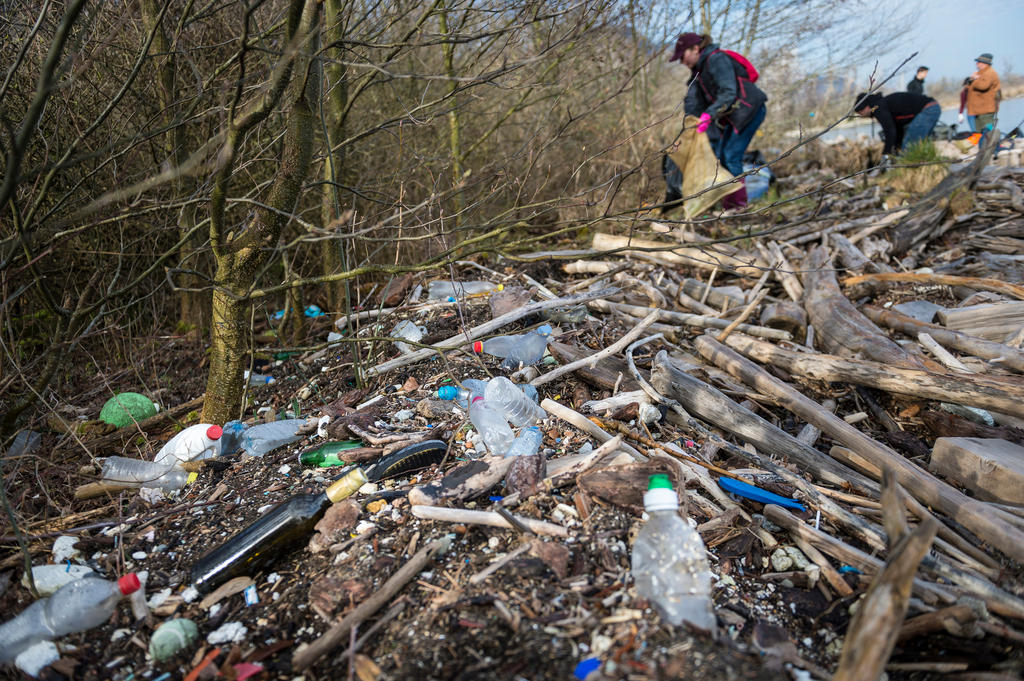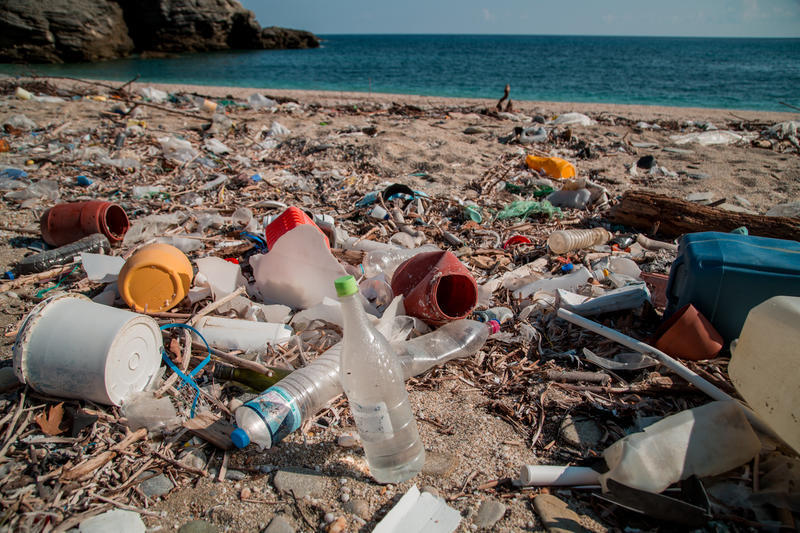
Tonnes of plastic trash enter Lake Geneva every year

Every year around 50 tonnes of plastic end up in Lake Geneva, located between Switzerland and France, a new study has shown.
The study, commissioned by the Association for the Safeguard of Lake Geneva (ASL)External link, estimates that half of all the plastic waste found in the lake each year (30 tonnes) comes from car and lorry tires. The dust and tiny particles from tires are washed from the roads and end up in the lake.
Rubbish and packaging thrown away (10 tonnes) is the second main source of plastic trash in the lake – around 10 tonnes a year – followed by plastics used in construction work (3.3 tonnes), and particles from textiles (2.2 tonnes), paint (0.9 tonnes) and cosmetics (0.7 tonnes).
The study, led by Julien Boucher, together with the Federal Institute of Technology in Lausanne (EPFL), estimates that 99% of the plastic that ends up in the lake are dropped as litter and particles washed away via gutters, ditches and drains. Only one tenth of the plastic that is thrown or flushed into the lake is evacuated via the Rhône River, near Geneva.
According to tests, most of the plastic waste appears to accumulate in sediment at the bottom of the lake and very little is broken down even on the surface. Sizeable amounts of plastic waste are absorbed by fauna, especially birds and fish.
To combat the problem of plastic waste, the ASL is urging large companies to limit the amount of plastic used especially in packaging, and for consumers to favour reusable materials and containers.
A study published earlier this year found that plastic waste washed up from Lake Geneva had hazardous levels of bromine and cadmium that presented a clear threat to wildlife. Researchers also detected high concentrations of mercury and lead among the litter.

More
Nestlé ranked among top plastic polluters worldwide

In compliance with the JTI standards
More: SWI swissinfo.ch certified by the Journalism Trust Initiative






























You can find an overview of ongoing debates with our journalists here . Please join us!
If you want to start a conversation about a topic raised in this article or want to report factual errors, email us at english@swissinfo.ch.